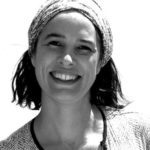Link to Pubmed [PMID] – 30948267
Link to DOI – S1097-2765(19)30148-010.1016/j.molcel.2019.02.037
Mol Cell 2019 05; 74(4): 785-800.e7
Antibiotics can induce mutations that cause antibiotic resistance. Yet, despite their importance, mechanisms of antibiotic-promoted mutagenesis remain elusive. We report that the fluoroquinolone antibiotic ciprofloxacin (cipro) induces mutations by triggering transient differentiation of a mutant-generating cell subpopulation, using reactive oxygen species (ROS). Cipro-induced DNA breaks activate the Escherichia coli SOS DNA-damage response and error-prone DNA polymerases in all cells. However, mutagenesis is limited to a cell subpopulation in which electron transfer together with SOS induce ROS, which activate the sigma-S (σS) general-stress response, which allows mutagenic DNA-break repair. When sorted, this small σS-response-“on” subpopulation produces most antibiotic cross-resistant mutants. A U.S. Food and Drug Administration (FDA)-approved drug prevents σS induction, specifically inhibiting antibiotic-promoted mutagenesis. Further, SOS-inhibited cell division, which causes multi-chromosome cells, promotes mutagenesis. The data support a model in which within-cell chromosome cooperation together with development of a “gambler” cell subpopulation promote resistance evolution without risking most cells.

